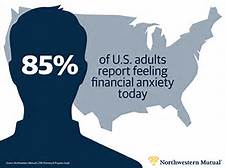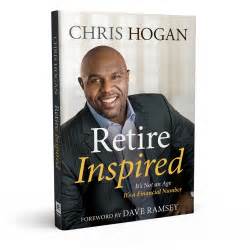
A 2016 Northwestern Mutual study revealed that 85% of US adults suffer from financial anxiety. According to gobankingrates the top 3 causes of money related anxiety are:
- Never being able to retire. I think this is a valid concern (ding, ding, ding, no more callers please, we have a winner!). According to USATODAY, 46% of Americans save 5% or less of their income. 5% is a good place to start but that’s not going to be enough to retire on. Save early and often. I recommend saving at least 10% of your salary once you get your first “real” job out of college. I believe you should bump up your saving percentage to 15% by the time you are 30 (earlier if you can – the power of compounding works much better if you start early).
I suggest you participate in your 401k plan at work, especially if the company offers a matching contribution; if they do not offer a match then use a traditional or Roth IRA (tax diversity) instead. I recommend low-cost index funds for starters, but the amount you save is more important than the investment vehicle (IMHO). By the time you are 40, I think you should calculate how much you really need (an exact number) to retire on (or become financially independent). Chris Hogan calls this the R:IQ. If you get the book, it includes a survey that you can fill out to find out your unique R:IQ. I highly recommend you at least calculate your R:IQ. I read the book too – quite interesting and motivating as well.

see below one of my previous posts about becoming financially independent
- Always living paycheck-to-paycheck. According to money/cnn 76% of Americans are living paycheck-to-paycheck. (Houston, we have a problem!)
see below one of my previous posts on ways to reduce your costs.
see below one of my previous posts on how to set some financial priorities
Set a balanced budget. Setting a budget is simple – I didn’t say it’s easy – but it is simple. Spend less than you make. Start with the basics: food, housing, and transportation: then pay any debts you owe (student loans). I only recommend adding luxuries (don’t confuse wants with needs) if you are debt-free (excluding your mortgage). If you really want that new couch then save up and pay for it in full – don’t put it on a credit card.
- Living in debt forever. It all goes back to setting a sustainable budget.
see below one of my previous posts that will help get you started on your own financial plan (aka a budget)
But let’s say you made a few mistakes while playing the game of life and have accumulated some debts (e.g., student loans, car payments, etc.), what do I do now? You get mad and pay-off those debts as fast as you can. #you only live once – don’t spend it constantly paying off past debts. Let’s do a debt snowball. (see video below). Pay off the smallest one, then move on to the next one, and so on. I know it’s not easy – getting ahead never is – but it is worth it. . .

Recent Comments